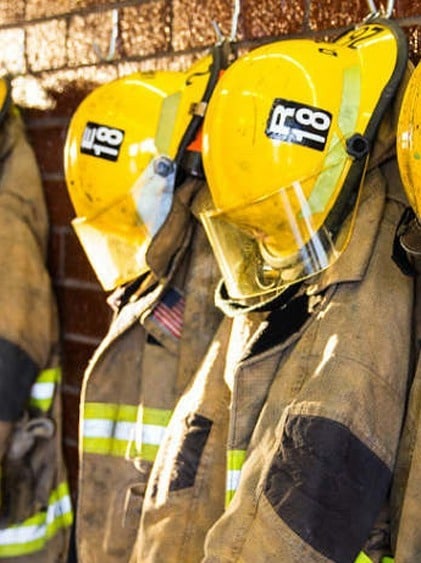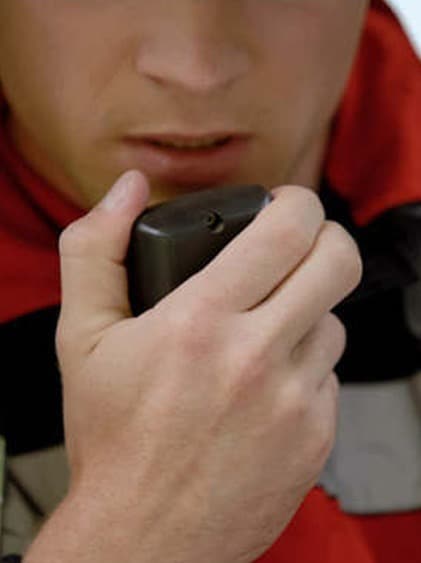Crisis Intervention Training (CIT)
Partnering with NAMI Orange County to provide free mental health training, de-escalation tactics, and staff wellness best practices for traditional and non-traditional First Responders
Crisis Intervention Training (CIT)
Training Targeted to Anyone Who May Interact With a Person Experiencing a Mental Health Crisis in a Professional Capacity
Communication Skills
De-escalation Techniques
Mental Health Medications
Mental Health Treatments
Legal Issues
Community Resources
Recognize Distress & Trauma
Recognize Addiction
If you work or interact with individuals experiencing mental health crises or psychological distress, consider registering for one of our no-cost trainings.
Benefits of CIT
Clear Guidelines for Traditional and Non-Traditional First Responders To Identify Systemic Problems, Create Mutually Beneficial Solutions and Increase Safety
- De-escalation and tactical communication
- Youth & Mental Health First Aid
- Multi-Cultural Mental Health Training
- Healthy Coping Skills for Stress & Anger Management
- Understanding Adverse Childhood Experiences (ACEs)
- Trauma-Informed Care
Trainings held in small groups and provided at no cost throughout Orange County. Continuing Education credits available for some trainings.
Do You Have a Story About How CIT Impacted You?

CIT for Law Enforcement
The Crisis Intervention Training (CIT) for Law Enforcement program provides an overview of mental health, behavioral health, neurological disorders, substance abuse, types of suicide ideation and how to respond to various situations that may occur.
In this training, we cover:
- Assessing for risk of suicide or harm
- Enhancing de-escalation and tactical communication skills
- Gaining knowledge on mental health conditions and local mental health resources
- Identifying how to work with individuals and family members experiencing mental health crises
* POST (Commission on Peace Officer Standards and Training) approval pending for continuing professional education credits. Please contact us for more information.


CIT for firefighters and paramedics/emergency medical services
Firefighters and paramedics are often the first to encounter individuals facing crises, and experiencing a crisis can trigger an underlying behavioral health concern.
This Firefighter and EMS-focused CIT training offers specific techniques to equip participants interacting with people in crisis. Take this training to sharpen communication skills and add a new level of preparedness and confidence.
*Up to 10 hours of in-person training and virtual self-paced modules provided for CE credit. Please contact us for more information.


CIT for emergency dispatchers
Dispatcher-focused CIT training offers specific mental health information and de-escalation techniques to equip dispatchers to handle the initial contact with those in crisis. Active listening and patient questioning skills are enhanced to ask questions and listen for the nuances of mental illness, medication side effects, cognitive impairment, suicide warning signs, and more.
Let us help you learn invaluable skills that will empower you with tactical communication skills and compassion.
*16 Continuing Education Credits will be provided and have been approved by POST (Commission on Peace Officer Standards and Training). This training can be found on the POST Catalog of Courses, Certification # 1457-30888-20


CIT for correction officers
Approximately two-thirds of female inmates in prisons and jails and one-third of men in prisons and jails report being diagnosed with a mental health concern.
Correction officers are responsible for the safety and welfare of a highly concentrated population of inmates with mental health concerns.
Providing CIT for correction officers can help them to recognize signs and symptoms and be part of the solution to bring change through collaboration with mental health professionals. This corrections-focused CIT training offers specific techniques to equip corrections officers interacting with persons in crisis and strategies for managing stress and incorporating self-care into their daily routines.
*16 Continuing Education Credits will be provided and have been approved by STC (Standards and Training for Corrections). This training can be found on the STC Catalog of Courses, Certification # 05531402


Mental health first aid
Mental Health First Aid teaches how to identify, understand and respond to signs of mental illness and substance use disorders in adults 18 and older. Enhance skills needed to provide initial support and help connect people to appropriate care.
Mental Health First Aid training will help traditional and non-traditional First Responders:
- Assess for risk of suicide or harm
- Become certified in Mental Health First Aid for Adults
- Identify common signs and symptoms of mental illness and substance use
- Know how to connect a person with help
- Know how to interact with a person in crisis
We are now offering specialty certification classes:
- Mental Health First Aid: FIRE/EMS
- Mental Health First Aid: Public Safety
- Mental Health First Aid for Veterans, Service Members and their Families
- Youth Mental Health First Aid: Those working with Youth


New trainings for our expanded audiences
We are happy to announce that our outreach efforts have been expanded to cover the following audiences:
- Courtroom Workers and Personnel
- Field Based Advocates
- First Responder Volunteers
- Health Care Personnel
- Homeless Street Outreach Workers
- Non Law Enforcement Dispatchers
We have created trainings targeted explicitly for those who may interact with a person experiencing a mental health crisis in a professional capacity.
Vicarious Trauma: Focuses on Vicarious Trauma, PTSD, and Burnout.
Trauma Informed Care: Focuses on the causes and effects of trauma and how a trauma-informed approach can be beneficial.
Situational Awareness and Safety: Focuses on the fundamentals of situational awareness and safety in the field.
De-escalation: Focuses on identifying escalating situations, learning basic de-escalation skills, and applying the skills to various circumstances.

A SoCal firefighter-paramedic shares how CIT training changed the way he approached a sensitive situation
During a call with a threat of suicide, a senior firefighter-paramedic shared how CIT training changed the way he approached a sensitive situation. In the past, the medic said, “I would have stressed all the reasons the person had something to live for, but it always felt like a debate. On this call, I used some of the CIT techniques, simply reflecting ‘you seem very discouraged’ and ‘can we help you get past this?’ This works! It engages the patient where they are and sidesteps the resistance that often occurs in these calls"
A SoCal firefighter-paramedic credits CIT training for changing his approach
He was agitated and believed that someone was trying to steal his belongings. In the past when Jim had an encounter with EMS personnel, he had to be restrained prior to being taken to the ER. A simple question made this experience different. From a safe distance, the medic calmly asked 'Do you want me to come over to you or do you want to come up to me to talk about how I can help?' Jim seemed surprised, stood silently for several long moments, then said, 'Yeah, I'll come up,' reflecting his sense of choice and safety. After a brief assessment, Jim willingly went with the medic and they were able to address his medication compliance, which was the root cause of the issue
Contact Us
Are You Interested in Bringing a No-Cost Crisis Intervention Training to Your Organization?
Western Youth Services
NAMI OC




Funded by the OC Health Care Agency.


